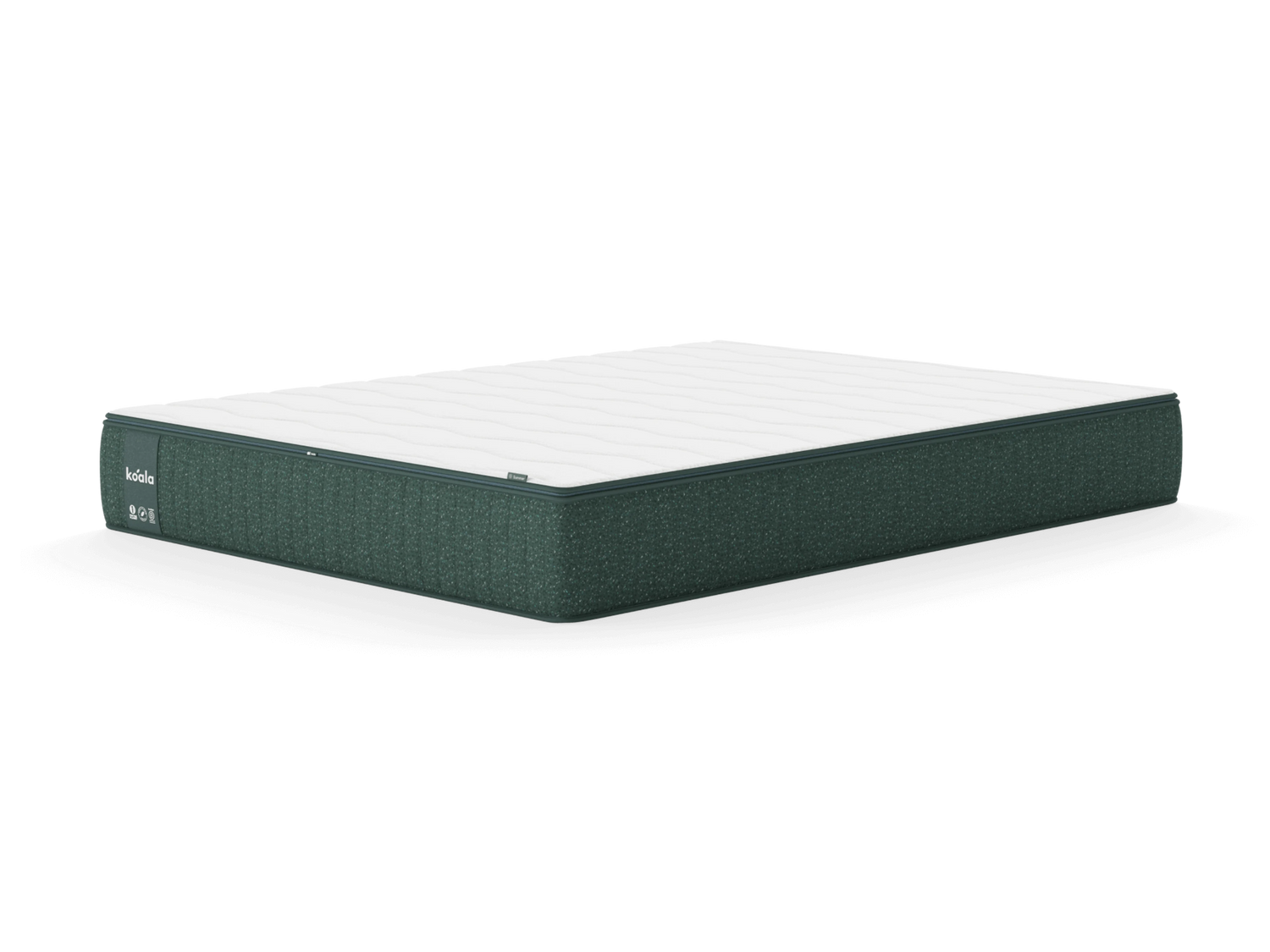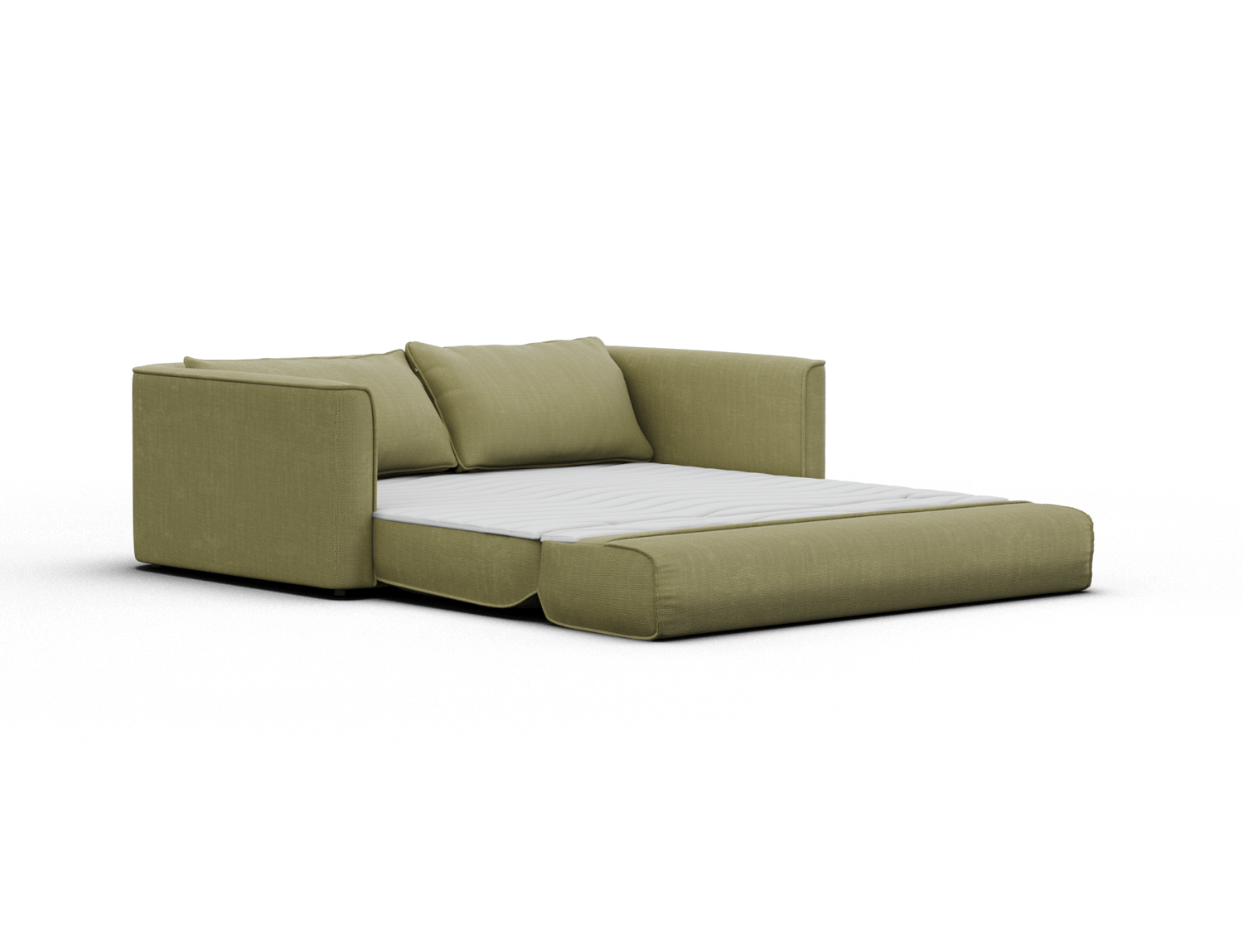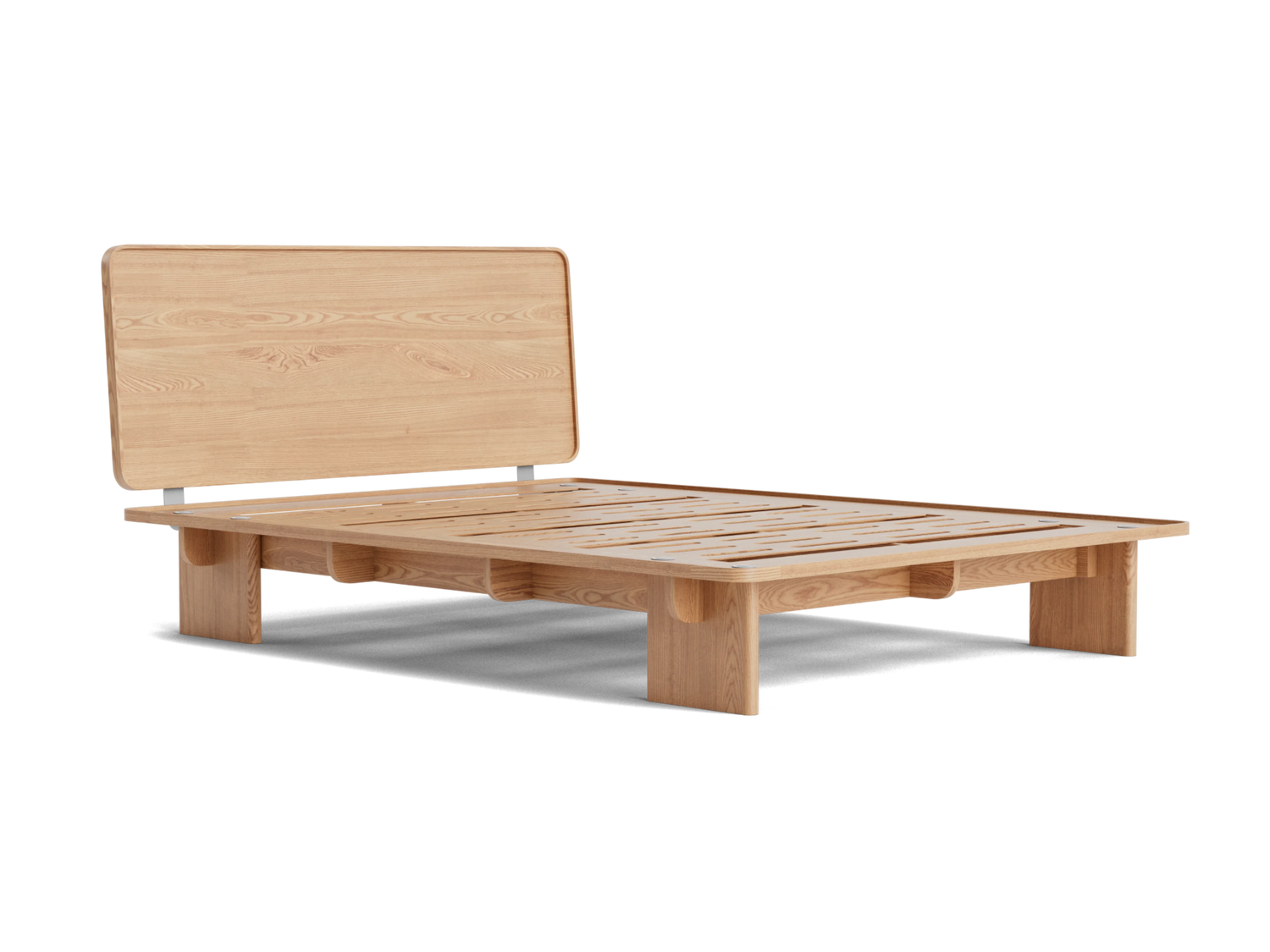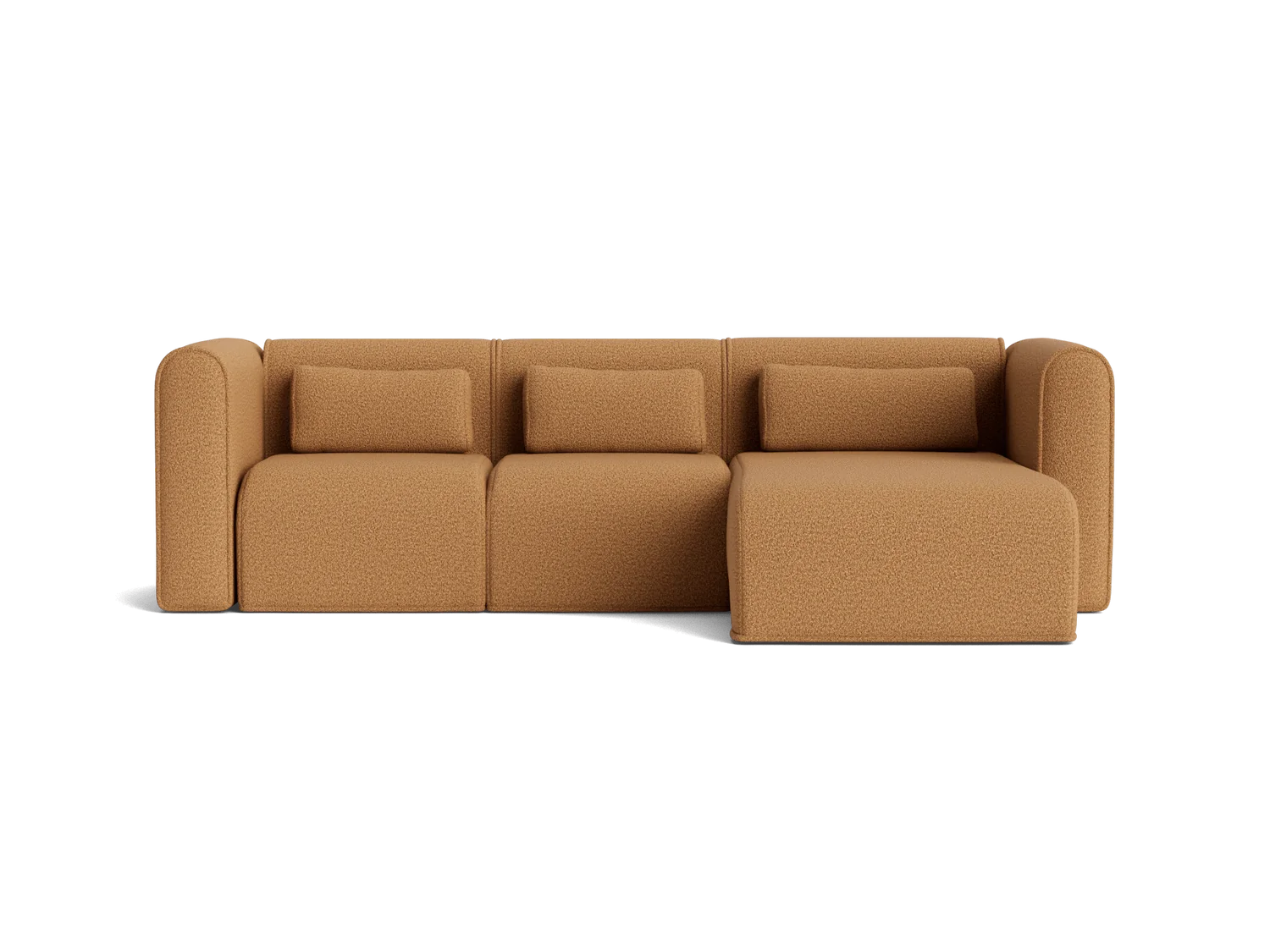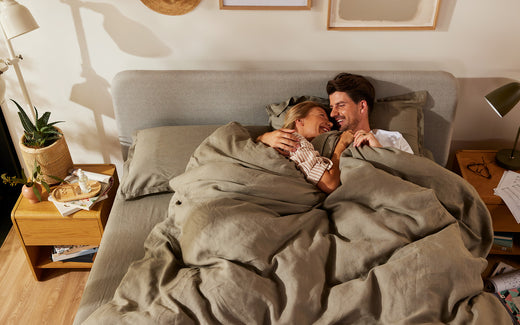
How to sleep better: we spill the (chamomile) tea
Share
POV: It's 2am. You're googling 'how to sleep better' on your phone. Your partner is lying beside you, dead to the world and snoring louder than the Battle of Helm's Deep. Sound familiar? Australia, you're not alone. Koala knows the value of a decent night's kip. But we also know how hard it can be to get. So, to help our fellow koalas with their slumber, we spoke to sleep and clinical psychologist Andrew Mair. With his advice, we'll help you crack the code on how to get a good night's sleep. Plus, we'll spill the tea on whether things like chamomile and magnesium actually make a difference.
What ruins a good night's sleep?
Sleep is a must. We all know that. But no matter how much we know we need it, it's not always easy to get. Illness, injury, a later-than-usual coffee or just a good old-fashioned bad day can make an impact. "It's not uncommon for me to see people with sleep disorders that sometimes also experience periods of high stress or anxiety," Andrew says. Learning how to get better sleep could mean taking a look at your day to see what's disrupting it. For women, there's also the hurdle of sleeping with your period. A whopping 7 out of 10 women claim their sleep is affected in the lead-up to this time of the month. And the Australian Menopause Centre says 70% of menopausal women get disruptive hot flashes that cause them to sweat during sleep. Something to look forward to! Teenagers and sleep are a whole other kettle of fish. According to Better Health Channel, teenagers need between 8 and 10 hours of sleep. How much are they really getting? Between 6.5 and 7.5 hours. "Parents think their teenagers are lazy or rebellious because they stay up late and sleep in," says Andrew. "Biologically, though, our circadian rhythm shifts during adolescence." Finally, sleep disorders and conditions like insomnia, sleep apnoea, snoring and teeth grinding can affect your rest. If you suspect they're to blame, reach out to a healthcare professional to learn more about what might be going on.
Getting your sleep environment just right
Your bedroom is kind of a big deal. And this sacred space can determine how and when you fall off into the land of nod. So, if you're wondering how to increase deep sleep or stay steady throughout the night, look to the boudoir for answers. 💤 Be cool. Being a hottie is excellent for everyday life, but when you go to bed, not so much. Andrew has the inside scoop on why. "When we sleep, our core body temperatures drop. This has an inverse relationship with our melatonin production and our levels of sleepiness." And according to the Sleep Health Foundation, the best temperature for sleep is between 17 and 19 degrees. Roger that. 💤 Dark and dreamy. No, we're not talking about that fifth dark choc Lindt ball you stuffed in your mouth when nobody was looking. We're talking about lighting. It's no surprise that a bright room can throw off our ability to sleep. Think streetlights, electronics or the fluoro shining from the dunny. When you can't turn it off, use helpers like eye masks and black-out curtains to do the dimming. 💤 Say no to noise. Gone are the days of your youth when you could pass out on a mate's couch mid-rager and still get your eight hours. As a 'grown-up', you now need peace and quiet to sleep. So, if noise is seeping into your bedroom, try a white noise app or some plugs to drown it out.
 If you're having sleep troubles, set yourself realistic sleep goals and follow our tips for a better night's sleep
If you're having sleep troubles, set yourself realistic sleep goals and follow our tips for a better night's sleepHow to get a good night's sleep
Sad but true — there's no magic formula for catching those ZZZs. But we've got some tips that can make it a little easier. Check out these pointers for how to increase deep sleep, doze off quicker and get the rest you deserve. Ahhh.
Get real with your expectations
Let's face it, most of us have experienced poor sleep at some stage in our lives. So don't set an unrealistic goal or rely on a handful of different sleep aids to nod off. "What happens if we set up these expectations about our sleep and what we're doing to achieve it, and they fail to be fulfilled?" asks Andrew. "This can actually escalate the anxiety that goes with your sleep." Woosah.
Bed sharers of the world unite
Snoring partners. Doona hogs. Annoying individuals who want to spoon all night and be 'romantic'. Sharing a bed with someone isn't all it's cracked up to be. So, finding the best sleeping positions for couples is key. Have a chat during the daytime about what works for you in the night and save the 2am divorce contemplation for another issue.
What's your favourite position?
Side sleepers, tummy sleepers, freestylers. Did you know the way you lay can have an affect on how well you're sleeping? Conditions like back and neck pain, sleep apnoea, snoring and reflux might call for a special possie to help you get the best sleep. Try some out to see what feels right.
Does magnesium help sleep?
There are loads of supplements out there aimed at getting better rest. But does magnesium help with sleep for real? "Not all of the research on magnesium is clinically meaningful," explains Andrew. "It's more about taking care of yourself, doing things that make you feel relaxed." So take that magnesium if you reckon it helps, but don't stress if you're not on the supplements. And what about herbal remedies? Does chamomile tea help sleep? Just like supplements, a hot drink before bed may help, but it's more likely to be the routine than the tea that allows us to sink into relaxation. Whatever the reason for that herbal nightcap, if it works, drink up!
Pillow fight
In the market for a new pillow? Luckily, we make a trio of beauties designed for dreaming. Our Cloudy Pillow is super-soft and has been designed for every type of sleeper. Our bestselling Koala Pillow has a softer and a firmer side, so you can choose which suits you, while the Breeze Pillow's memory foam absorbs heat and then releases it to ensure you stay at the perfect temperature all night long! Whatever your preference when it comes to pillows, know your sweet spot, find your sweet spot, and it could be the trick to getting a better night's rest.Still not sure which pillow to choose? That's why we created our pillow quiz!
Reach out for help
Sleep is something we all struggle with from time to time. And when we're not getting enough, it can take a toll. Reach out to a medical professional to discuss how to get better sleep if you're struggling, and see what they suggest.
The Koala cure for a good sleep
There's no point in looking for solutions on how to sleep better when you're lying on a razor-thin foam mattress all night. Or the squeaky hand-me-down spring number your grandparents used to get frisky on. You deserve the full Sleeping Beauty experience (sans poison-soaked pink lady). Well, Koala is here to the rescue. Our award-winning mattress range includes three sleep superstars to help you nod off. First, there's the all-rounder Koala Mattress for every type of sleeper (and the Koala SE Mattress for those on a tighter budget). Then there's the Calm As Mattress, which offers total rejuvenation. And then there's the Soul Mate Mattress for those who have to share a bed but want to do it comfortably. Every Koala mattress features an anti-slip bottom, antibacterial treatment, CertiPUR-US certification and super comfy and responsive Kloudcell™ foam technology. All without costing you a bag full of gumnuts. Worried about buying a bed online? Say hello to Koala's famous 120-night trial. This bad boy gives you plenty of time to see if you love your new mattress, and if you don't, we'll pick it up for free (in all metro areas) and give you an entire product refund. No dramas.
Get the koala-ty sleep you deserve
Sleep can be a complicated beast to tame. And there's a good reason why the coffee industry is always booming. Getting your bedroom right and your body supported is the best place to start. Check out the range from Koala and begin the journey towards a better rest.
